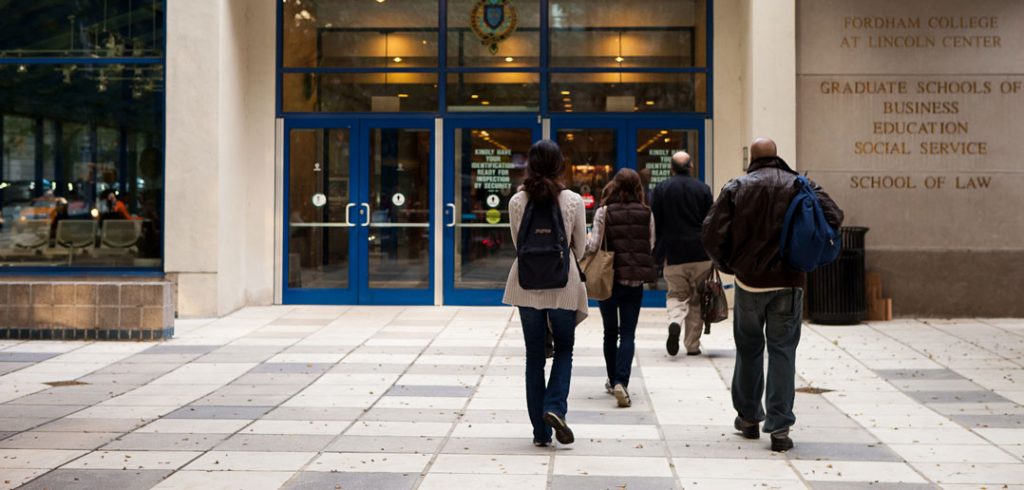Fordham University was recently recognized in The Chronicle of Higher Education’s national list of “Colleges with the Highest Student-Mobility Rates,” a ranking that measures whether recent graduates’ income brackets surpass that of their parents.
Among private four-year institutions, Fordham was ranked No. 10. It led the way among the nation’s 28 Jesuit universities.
Mobility rates were based on the percentage of college graduates who advanced to the top 20 percent for individual earnings, having come from a parental household income in the bottom 20 percent of the national income distribution.
“Fordham opens the doors for opportunities with all of its exposure to different career paths and programs,” said Annette McLaughlin, director of career services. “We’re able to create upward mobility by making those connections and helping students to realize they’re part of a bigger community, and that they don’t have to go at it alone.”
For the study, which was based on millions of anonymous tax and financial records, The Chronicle looked at the 2014 individual wages and self-employment earnings of students born between 1980 and 1982. In the report, the University’s median parent household income was $113,300 and child earnings in 2014 were $63,000— putting Fordham’s mobility rate at 3.98 percent.
In his own study of social mobility, Connor Redpath, FCRH ‘17, learned that there are many factors that are important when predicting financial success. They include age, sex, race, and the income of parents.
Redpath, a graduate student in economics, examined data from the “Panel Study on Income Dynamics at the University of Michigan,” and found that, like The Chronicle study, the relative income of the top-earning parent affects the relative income of the child. He also learned that for every 1 percent increase in a parent’s relative income, there is a 1.4 percent increase in the child’s relative income.
He said exploring data from the “Panel Study on Income Dynamics” helped him to consider some of the lesser-known socioeconomic factors that may affect mobility.
“Politics aside, there are many possible explanations, including preferences, access to resources (especially education), discrimination, and genetics,” he said.
Wander Cedeño, GABELLI ’10, GSAS ‘12, said that education can also provide options, particularly for students who come from modest economic backgrounds.
As he reflects on his own transition—from a young student from Washington Heights studying economics at Fordham to a leading economist for the U.S. Bureau of Labor Statistics in Washington, D.C.—he believes his Fordham education served as a pathway for advancement.
“It’s been a huge factor in my success,” said Cedeño, who comes from a working-class background and describes himself today as part of the middle-class.
Though he was the first person in his immediate family to attend a four-year institution, he credits his Dominican-born parents for helping to pave the way.
“The generation that arrived here made great sacrifices in order for their kids and grandkids to achieve what they couldn’t possibly dare to achieve,” he said.
Related Articles:20 in their 20s: Wander CedeñoBreaking Through: A Look at First-Generation Students

